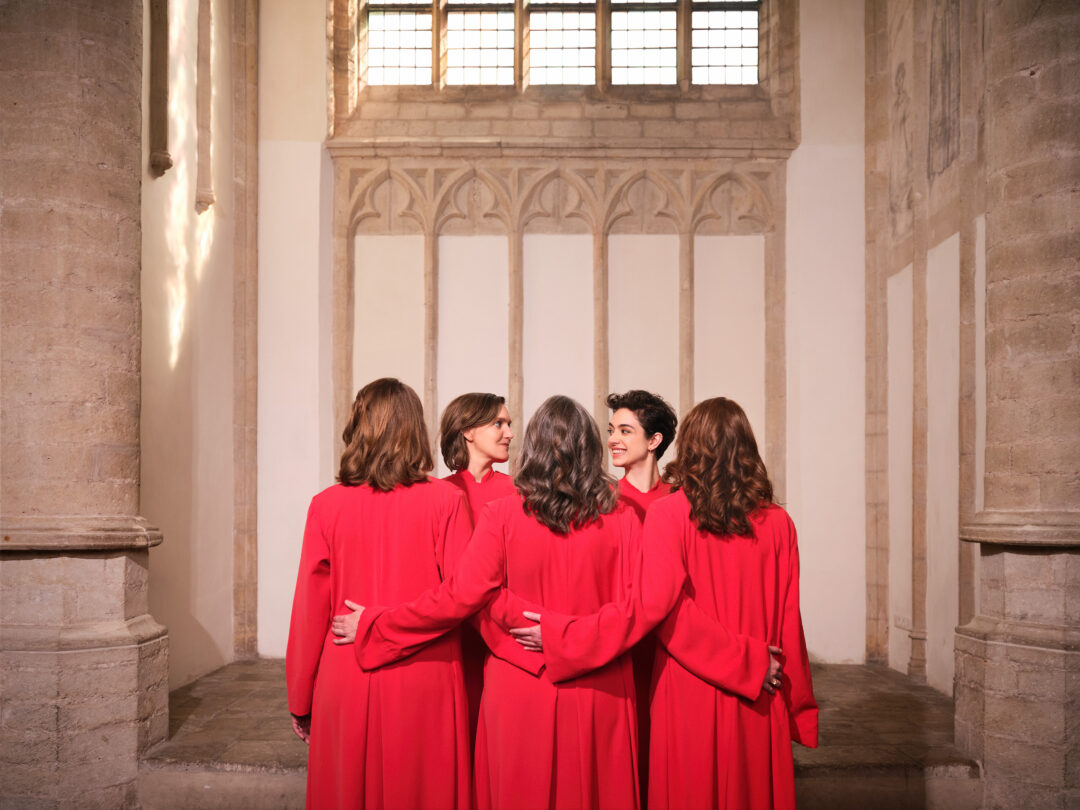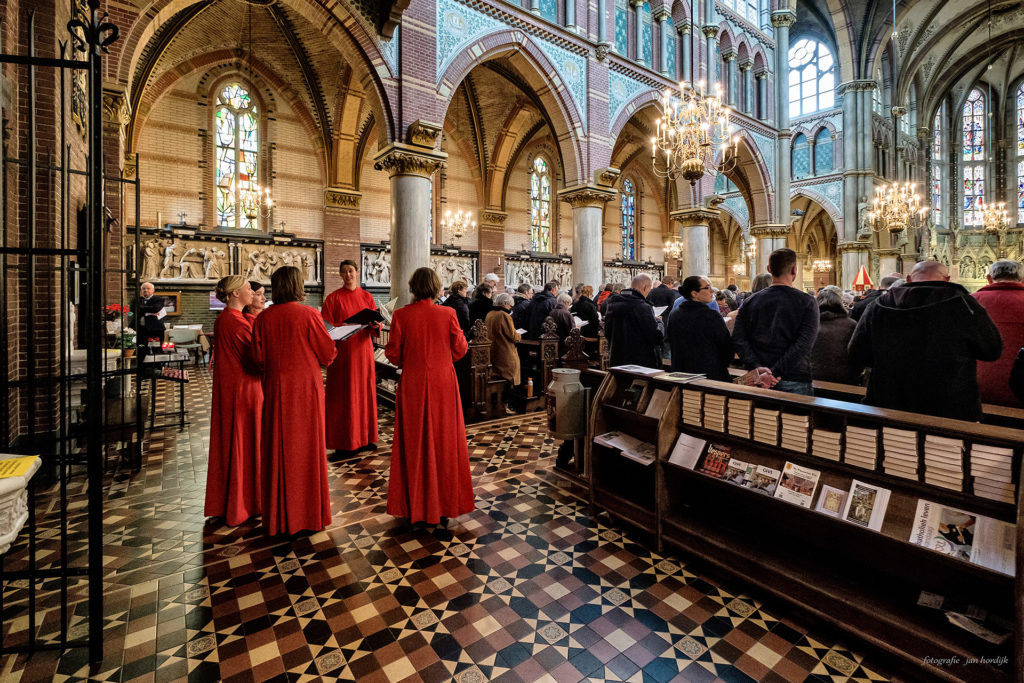Wishful Singing sings both contemplative and energetic sacred music and explores the roots of early polyphony, which had its origins in the Gregorian hymn Ut queant laxis. The programme spans eight centuries of music, ranging from medieval Gregorian chant and Byzantine hymns to close harmony and music by contemporary composers, such as Ola Gjeilo and Duruflé.
We perform the Gregorian music from the original manuscripts, working on the basis of extensive research and with the guidance of several experts. One of the things we found startlingly interesting, is that this ancient music has no beat; the notation only indicates where to go faster, slower, where to wait or to keep the pace, but there is no given tempo or pulse as is common in western music today. This leads to a timeless way of performing in which the singers must find their unison together, feeling each other, the text and the music, creating extraordinarily beautiful moments and a more-than-human connection between singers and audience.
In 2020, during lockdown, we launched an online course in Gregorian chant singing, which – amazingly – attracted more than 6.000 people and an enthusiastic response. In the next years we want to expand these courses to an international audience, creating a wider interest in Gregorian chant. The online courses will be combined with performances in churches and abbeys all over Europe, working together with local choirs and schools, in ritualised settings that will attract many people who otherwise might not visit churches or concerts.

 Wishful Singing
Wishful Singing
 Wishful Singing
Wishful Singing
Gregorian chants can be sung in many different ways. Wishful Singing's style is my favourite by far. It's very semiological, very exact in its scientific accuracy, and yet very natural and flowing. It's the best of two worlds. Herman Finkers (Dutch cabaret perfomer and gregorian expert)